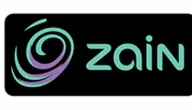Starting a party rental business from home can be a fantastic venture if you’re looking for a flexible, profitable business with manageable startup costs. With demand for event rentals growing each year, there’s a solid opportunity to turn your spare room, garage, or basement into a headquarters for a thriving business. In this guide, we’ll walk you through every step of starting a successful party rental business from your home.
Table of Contents
Understanding the Party Rental Industry
The party rental industry is booming, with a global market value projected to grow by 10% annually over the next few years. The surge in personal and corporate events, from weddings to birthdays to corporate retreats, means demand for party rentals, from tents to tables to bounce houses, is increasing. Getting into this industry offers you a chance to profit while helping clients create memorable experiences.
Benefits of Starting a Home-Based Party Rental Business
Starting from home gives you the flexibility to build a schedule around your life, saving significantly on overhead costs like office rent or warehousing. Plus, you can expand the business as demand grows, adding equipment and services as you gain more clients and experience.
Key Benefits
- Low Startup Costs: Running from home saves on office space and minimizes initial expenses.
- Flexibility and Control: Manage your own time and growth.
- Direct Client Interaction: Build strong customer relationships right from the beginning.
- Scalability: Start small and scale up as you gain more bookings.
Essential Steps to Start Your Party Rental Business
Starting a party rental business from home involves specific steps to get set up correctly and legally.
1. Create a Business Plan
- Outline your goals, target market, expected expenses, revenue projections, and marketing plan.
- A solid business plan helps you map out the future and is crucial for potential investors or loan applications.
2. Get Your Legal Structure in Place
- Choose a structure like a sole proprietorship, LLC, or partnership based on your needs.
- Register your business and consider trademarking your business name for legal protection.
3. Choose a Unique, Memorable Business Name
- Your name should convey what your business offers. Consider something catchy and easy to remember, like “Celebration Central” or “Fun Times Party Rentals.”
Researching Your Target Market
Understanding your potential customers is crucial. Research the type of events in your area and identify your primary customer segments.
- Local Events and Demographics: Are there more weddings, kids’ parties, or corporate events in your area?
- Identify Gaps in Local Offerings: See what your competitors offer and find where you can stand out.
Knowing your audience allows you to tailor your inventory and pricing to what people are looking for.
Choosing Your Niche in the Party Rental Industry
The party rental industry is vast, with many niches to choose from. Consider specializing in one of these areas to stand out and attract more customers:
- Furniture Rentals (tables, chairs, sofas, etc.)
- Decor Rentals (arches, backdrops, lighting)
- Kids’ Party Rentals (bounce houses, games, themed decorations)
- Corporate Event Rentals (projectors, screens, PA systems)
Focusing on a niche can help you develop a brand identity that sets you apart from competitors.
Setting Up Your Initial Inventory
Your inventory is the heart of your business. Start with essentials based on your chosen niche, then expand as demand increases.
- Essential Items: For a kid-focused business, prioritize bounce houses and games; for weddings, go for tables, chairs, linens, and decor items.
- Buying vs. Leasing: Initially, buying may be more economical, but consider leasing high-cost items like lighting or special effects to save on expenses.
Make sure to source durable, high-quality items to avoid frequent replacements and repairs.
Pricing Your Rental Inventory
Setting the right price is crucial for covering your costs and ensuring profitability.
Pricing Strategies:
- Cost-Based Pricing: Calculate your costs and add a markup.
- Competitive Pricing: Analyze competitors’ prices and adjust accordingly.
- Package Options: Offer bundles to provide clients with deals and increase sales.
It’s a good idea to start slightly below market rates to attract initial clients, then adjust as you build a reputation.
Building an Effective Marketing Strategy
Marketing will be key to attracting clients to your business, and starting from home, digital marketing can help you reach the most customers.
- Create a Professional Website: Ensure it’s mobile-friendly, showcases your inventory, and has clear booking options.
- Local SEO Optimization: Optimize your website with local keywords, and create Google My Business and Yelp listings to attract local clients.
- Social Media Presence: Use Instagram, Facebook, and Pinterest to show your inventory and event setups.
Consider collaborating with event planners, caterers, and venues to extend your reach.
Managing Bookings and Client Interactions
A smooth booking system ensures clients have a seamless experience. Use online booking software that can sync with your calendar, send automatic reminders, and even take deposits.
Customer Service Tips:
- Respond promptly to inquiries.
- Be flexible with custom requests to improve client satisfaction.
- Have clear rental policies in place for returns, damages, and late fees.
Building a Strong Online Presence
A well-established online presence can set you apart from competitors and increase your visibility.
- Google My Business: Keep your profile updated, respond to reviews, and post pictures of your setups.
- Review Platforms: Encourage happy clients to leave positive reviews, which can greatly influence new clients.
Insurance and Liability for Party Rental Businesses
Protecting your business with insurance is essential in case of accidents or damages.
- General Liability Insurance: Covers bodily injury or property damage.
- Rental Equipment Insurance: Protects against loss or damage to your inventory.
Work with a provider that specializes in small businesses for tailored policies that cover your specific risks.
Logistics and Delivery Management
Delivery logistics can be a challenge, especially working from home. Establish efficient routes and clear delivery policies.
- Organize Inventory for Quick Access: Make sure items are easy to find and pack for each booking.
- Consider Hiring Help: As business grows, hiring additional help or contracting delivery drivers can make the process smoother.
Expanding Your Business Over Time
Once your business gains traction, think about expanding.
- Add New Inventory: Based on client requests or trends, add popular items like photo booths or unique decor.
- Build Partnerships: Partnering with caterers or photographers can attract clients looking for one-stop event solutions.
Common Challenges in the Party Rental Business
Every business faces challenges. Here’s how to handle common issues in party rentals:
- Seasonal Demand: Offer deals or add seasonal items to boost off-season bookings.
- Equipment Maintenance: Schedule regular maintenance to keep your items in good shape.
- Customer Issues: Address complaints professionally, aiming to resolve issues quickly and keep a good reputation.
Tips for Running a Successful Party Rental Business from Home
- Keep Expenses Low: Monitor costs to maintain profit margins.
- Provide Excellent Customer Service: This is key for repeat clients and word-of-mouth referrals.
- Continuously Improve: Listen to customer feedback and make necessary adjustments.
Starting a party rental business from home can be rewarding and profitable. By following these steps and focusing on excellent service, you’ll create a business that thrives in this dynamic industry.
How Can I Apply the Steps for Launching a Party Rental Business to Other Small Business Ventures in Kuwait?
When considering launching small business ventures in kuwait, it is essential to follow the same steps as you would for a party rental business. Research the market, create a solid business plan, secure necessary permits, and invest in marketing. Applying these steps can set you up for success in Kuwaiti small business ventures.
FAQs
How much does it cost to start a party rental business?
Starting costs vary but generally range between $5,000 and $15,000, depending on inventory and marketing.
What insurance is required for a party rental business?
General liability and rental equipment insurance are essential.
How do I find customers?
Build a website, use social media, and list your business on Google My Business.
How do I handle damaged rental items?
Have a clear policy and deposit system to cover damage costs.
Can I run a party rental business part-time?
Yes, this business model is flexible and can be started part-time.
What’s the most popular item to rent out?
Bounce houses and tables/chairs are popular, especially for kids’ parties and weddings.
 Join Kuwait Mart's WhatsApp Channel and be the first to know about new deals and products
Join Kuwait Mart's WhatsApp Channel and be the first to know about new deals and products













